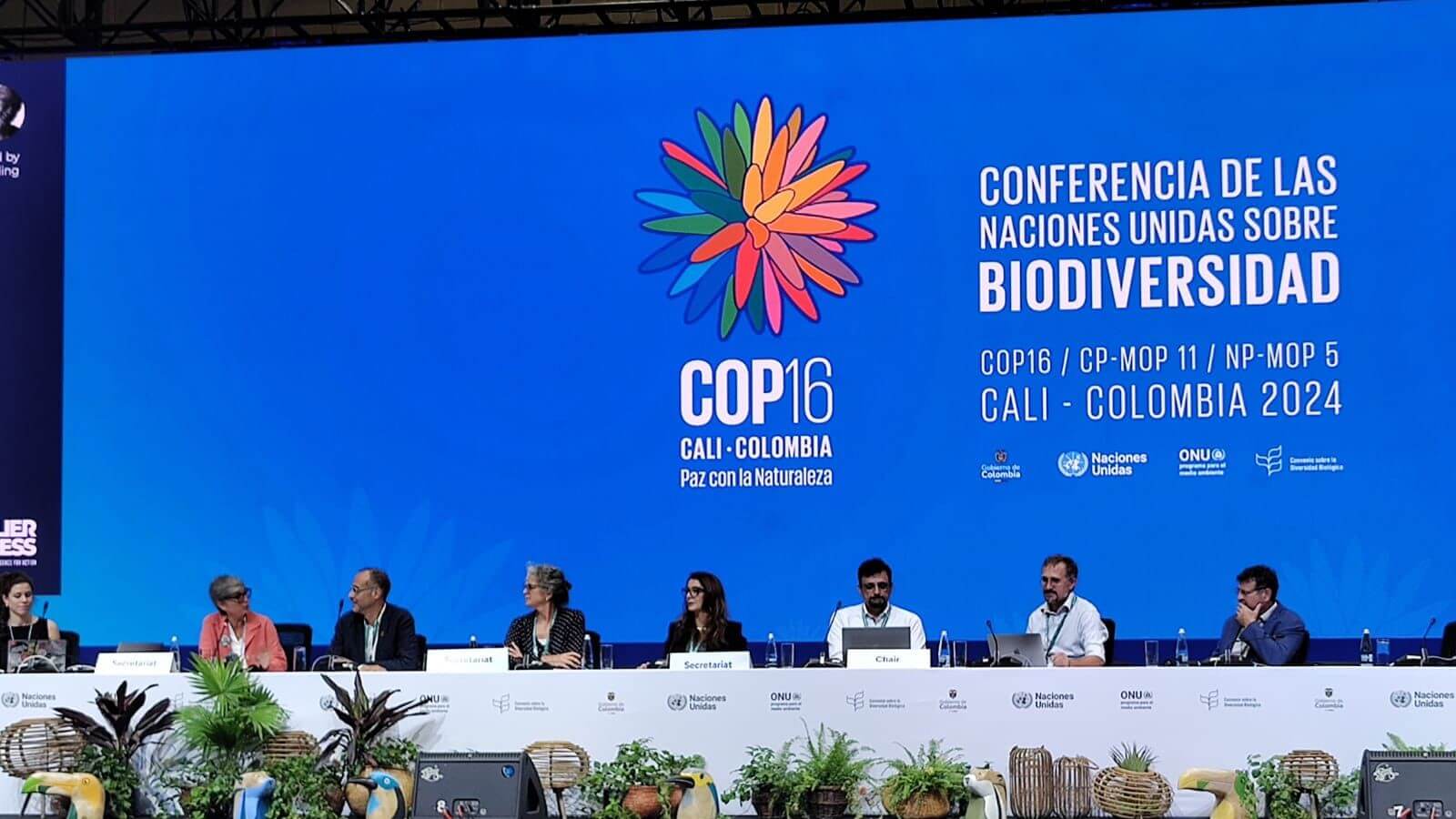
The 16th Conference of the Parties (COP16) to the Convention on Biological Diversity, held in Cali, Colombia, was a milestone for advancing global biodiversity commitments, marking the first biodiversity COP since the Kunming-Montreal Global Biodiversity Framework was adopted in 2022. This conference emphasizes turning ambitious global targets -such as conserving 30% of the planet’s lands and oceans by 2030 – into concrete, accountable plans that nations can implement locally.
COP16, themed “Peace with Nature,” focused on balancing human activity with ecosystem preservation, bringing together leaders, scientists, Indigenous communities, and civil society. The ISC Regional Focal Point for Latin America and the Caribbean is proud to advocate for biodiversity as a core priority in the regional action plan, recognizing its importance for both scientific progress and regional resilience. With Colombia and Brazil, two of the world’s most biodiverse nations, the need for targeted, regional action is urgent.
For the International Science Council Regional Focal Point for Latin America and the Caribbean (ISC RFP-LAC), COP16 provided a critical platform to engage with diverse stakeholders, collaborate on transformative solutions, and advocate for regional priorities in biodiversity conservation and sustainable development.
On 24 October, the ISC’s Regional Focal Point for Latin America and the Caribbean participated in the launch of the Montpellier Process at the Alliance of Biodiversity International and the International Center for Tropical Agriculture (CIAT) Future Seeds Bank. This innovation hub focuses on the conservation and sustainable utilization of crop diversity to address global challenges in food systems. During the launch event, the Council’s Regional Focal Point contributed to discussions on sustainable agriculture and the need for transformative agri-food systems to tackle the interconnected challenges of climate change, biodiversity loss, and food security.
The session underscored the growing importance of advancing agri-food systems in Latin America and the Caribbean, where the region’s rich biodiversity presents a unique opportunity to develop solutions that are both regionally relevant and globally impactful. This collaboration highlights the International Science Council’s commitment to promoting sustainable development by integrating science, policy, and local knowledge.
On 25 October, the ISC RFP-LAC contributed to the “Pooling Collective Intelligence for Action” side event. This session was part of the ongoing dialogue around multi-sectoral collaboration and knowledge exchange to address biodiversity loss and the transformation of food systems.
The event included representatives from the United Nations Convention on Biological Diversity, the Food and Agriculture Organization, the World Health Organization, and other key stakeholders, emphasizing the importance of the Montpellier Process as a platform for local-to-global-to-local action. Through collaborative, science-driven approaches, the session explored how to unlock synergies across various sectors, enabling collective intelligence to drive effective and equitable solutions to the polycrisis.
One of the key highlights of the RFP-LAC’s participation in COP16 was the signing of the Global Alliance for the Circular Bioeconomy at the Green Zone on 24 October, following the kind invitation of former Colombian Minister of Science and Technology, Dr. Mabel Torres, and the Legacy of Knowledge Corporation.
The alliance, which includes stakeholders such as the Development Bank of Latin America and the Caribbean (CAF), the World Wide Fund for Nature (WWF), the Economic Commission for Latin America and the Caribbean (ECLAC), and other regional partners, aims to accelerate the implementation of circular bioeconomy strategies across Latin America and the Caribbean.
The workshop and signing event demonstrated a significant commitment to integrating sustainable resource management and innovative financing mechanisms throughout the region. By embracing the circular economy, the Council’s regional office and its partners are working to promote sustainable agricultural practices, reduce waste, and foster more resilient economies.
Throughout COP16, the Regional Focal Point remained focused on advocating for the integration of biodiversity conservation into the broader sustainable development agenda. Specifically, the organization emphasized the importance of regional efforts to align with the Kunming-Montreal Global Biodiversity Framework, which sets the ambitious target of conserving 30% of the world’s lands and oceans by 2030.
Efforts included engaging with Indigenous communities, scientific experts, and policy-makers to ensure that both local knowledge and scientific research inform policy decisions. The team continued to advocate for stronger regional efforts to protect biodiversity while promoting sustainable agriculture, climate resilience, and social equity in Latin America and the Caribbean.
The engagements at COP16 highlight the growing importance of science-driven solutions to address the polycrisis of biodiversity loss, climate change, and food insecurity. Key priorities that emerged from the Regional Focal Point’s participation include biodiversity conservation, the circular bioeconomy, and multi-sectoral collaboration.
By fostering partnerships, strengthening collaborations, and guiding policy with scientific evidence, the ISC RFP-LAC ensures that scientific knowledge drives transformative biodiversity action. This effort aligns science-driven strategies with local and national priorities, enhancing conservation goals across Latin America and the Caribbean. Building on the momentum from COP16, the ISC RFP-LAC remains committed to making the scientific community a unified force in achieving global biodiversity targets and securing a sustainable future.
Disclaimer
The information, opinions and recommendations presented in our guest blogs are those of the individual contributors, and do not necessarily reflect the values and beliefs of the International Science Council